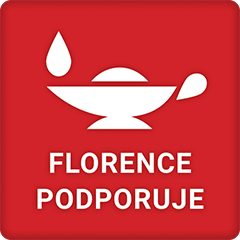


Číslo 3 / 2015
Decubitus ulcers

Decubitus ulcers, or pressure ulcers, are a common, yet serious condition associated with healthcare, most often occurring in the elderly. The ulcers are associated with soreness, mutilation, protracted healing, as well as with limitation of daily activities (problems with self care and immobility). Decubitus ulcers are very often directly connected to an increasing length of hospitalisation and potential mortality in the healthcare facilities, both emergency and after-treatment. The incidence varies with respect to the type of healthcare provided.
Daughter: Good morning, nurse. I have a question. My father is hospitalised here and we've been told by the doctor that he has developed a decubitus ulcer. Could you tell us what it is, please?
Nurse: Good morning, Ms Mason. Well, decubitus ulcer is a wound on the skin or tissue caused by pressure or friction. Basically, it is a bed sore. Pressure is the key risk factor for their development, so decubitus ulcers usually occur over bony prominences and are usually located on the heels, sacrum, elbows etc.
Daughter: I see. And how do they manifest?
Nurse: Symptoms range from redness to deep tissue lesions, affecting muscles, tendons and bones.
Daughter: And how can it be treated? The doctor said my dad is at stage II. What does that mean?
Nurse: The treatment depends exactly on the stage of the ulcer. Stage II is characterised by the formation of open or ruptured blisters filled with clear fluid accompanied by more or less fluid secreted from the wound. While only the epidermis is affected in milder cases, dermis – the layer beneath the epidermis – is damaged in more serious cases.
Daughter: Is it painful?
Nurse: Unfortunately, yes, as with any other wound.
Daughter: And is there a chance of healing?
Nurse: Healing is very individual and depends on a number of factors. However, we are doing our best to make it heal as quickly as possible.
Daughter: Ok, thank you. Good bye.
Nurse: Bye-bye.
|
soreness |
bolestivost, bolení |
|
protracted |
dlouhotrvající, zdlouhavý, vleklý |
|
wound |
rána, zranění, poranění |
|
pressure |
tlak |
|
friction |
tření |
|
basically |
v podstatě, v základě |
|
bed sore |
proleženina |
|
to rupture |
prasknout, protrhnout |
|
clear |
čirý, čistý; průhledný; jasný |
|
to accompany |
doprovázet, doprovodit |
|
to affect |
postihnout, zasáhnout, poškodit; ovlivnit |
|
beneath |
pod; dole, vespod |
|
to damage |
poškodit; pokazit, porouchat, polámat |
Lekce angličtiny pro časopis Florence připravuje překladatelská agentura ACP TRADUCTERA (www.traductera.com).
Ilustrační foto, zdroj: http://cs.medixa.org
Další články v tomto čísle
- I rány osudu padají často vedle. Na nás.
- O problematice dekubitů informuje nový portál dekubity.eu
- V otázce poranění ostrými předměty u nás chybějí informace i sankce
- Materiály na vlhké hojení ran – stále velká neznámá?
- Stomie mé problémy vyřešila
- Ošetřovatelská péče o chronické rány
- Problematika stravování obézních dětí
- Problematika HIV/AIDS a ošetřovatelství v kontextu jihozápadní Ugandy
- Dychová gymnastika astmatických pacientov
- Aktivní posilování paměti











